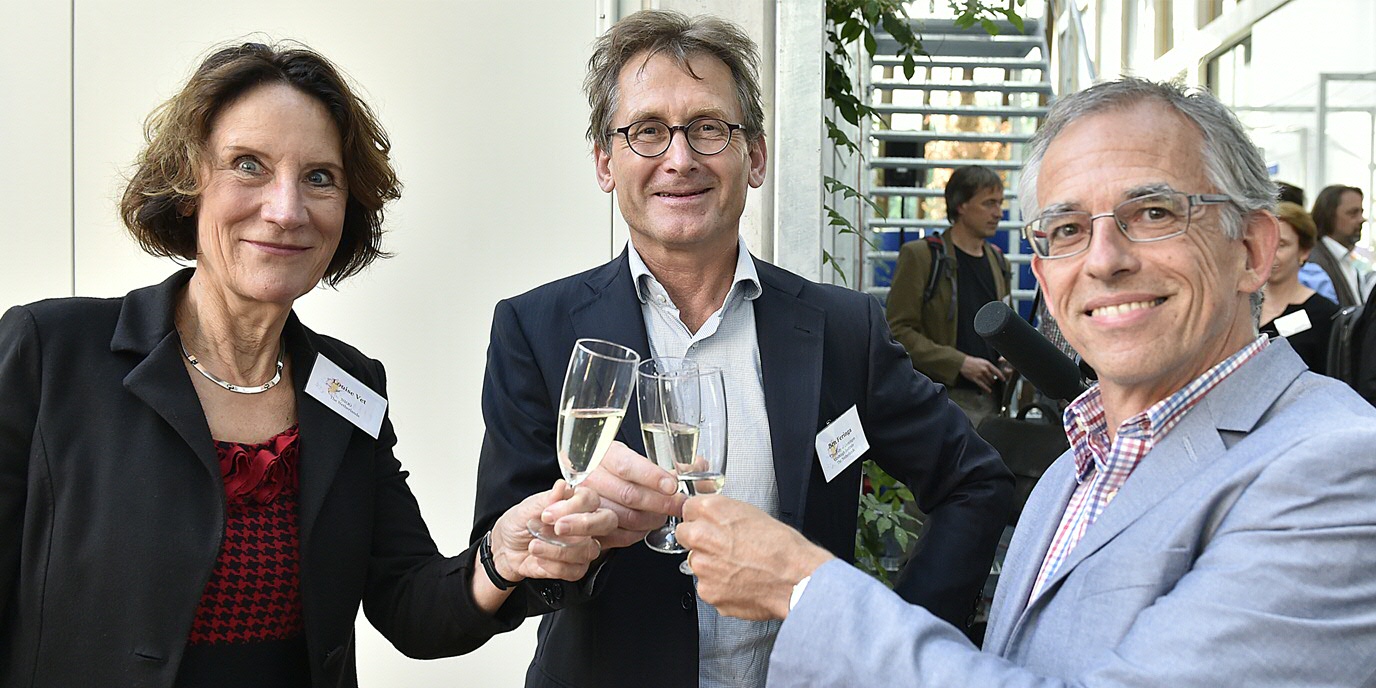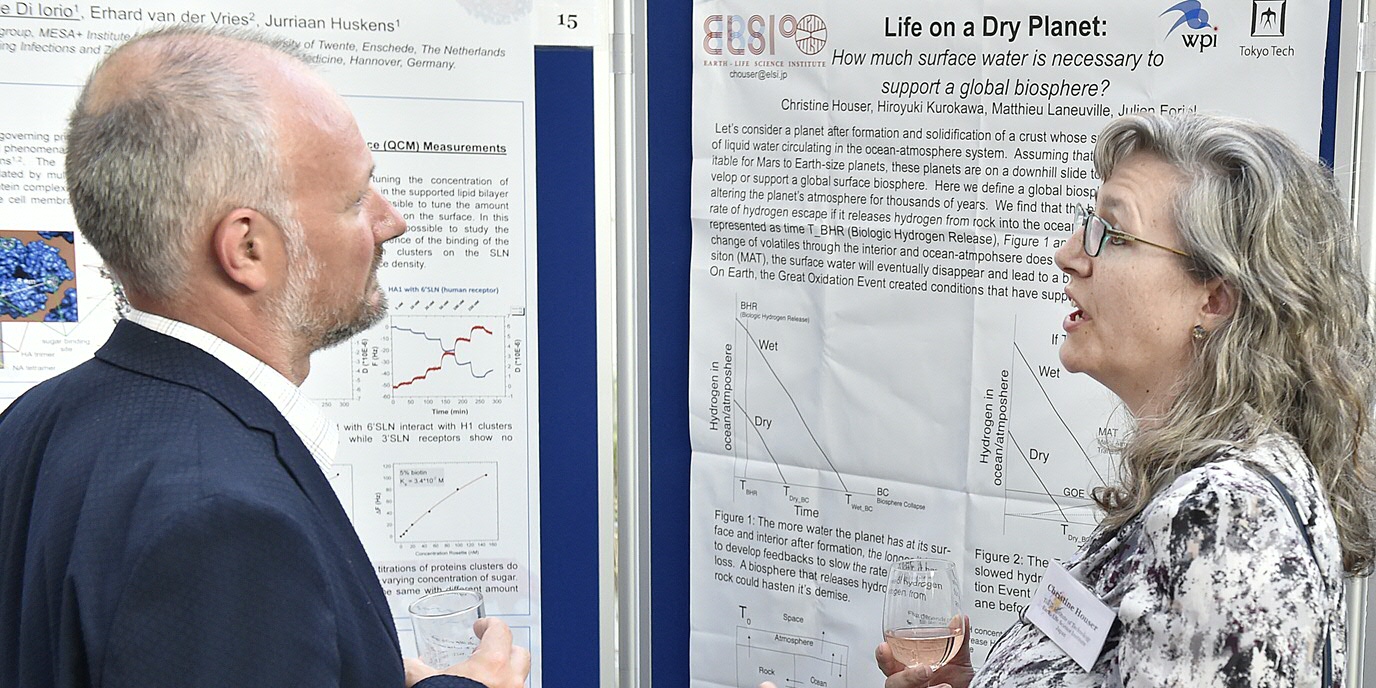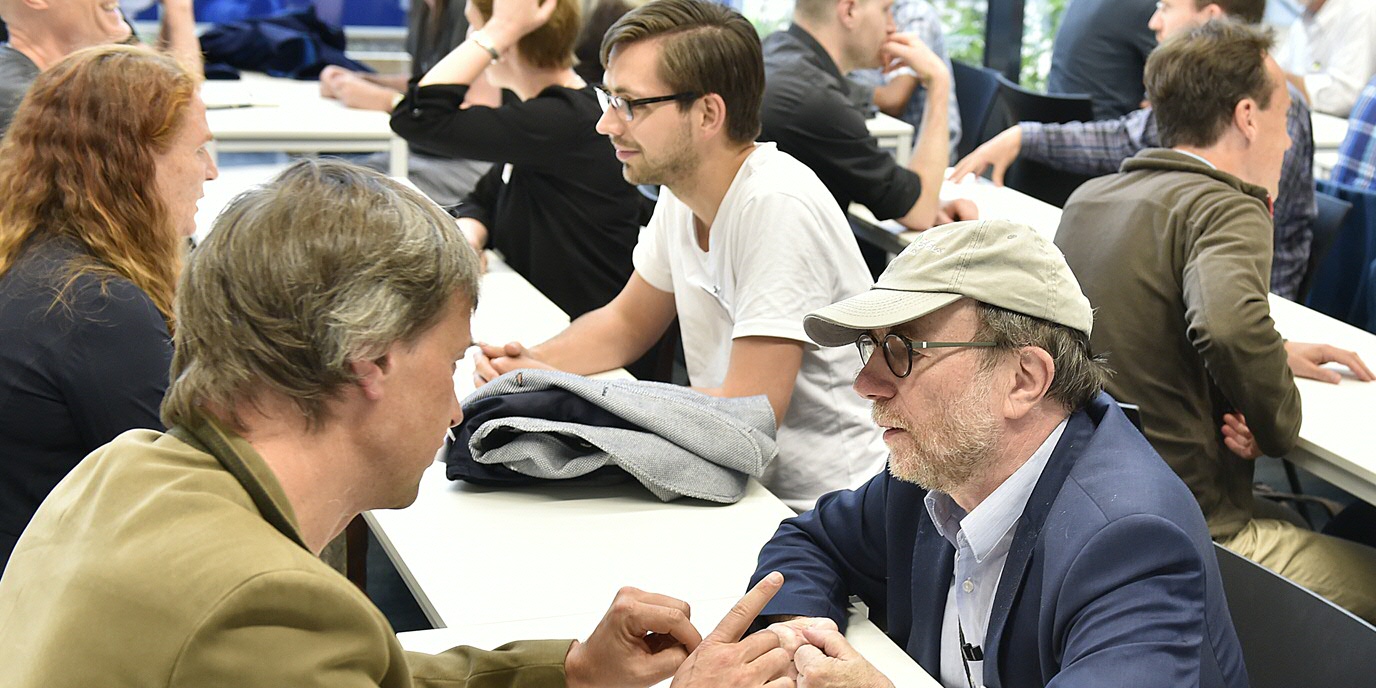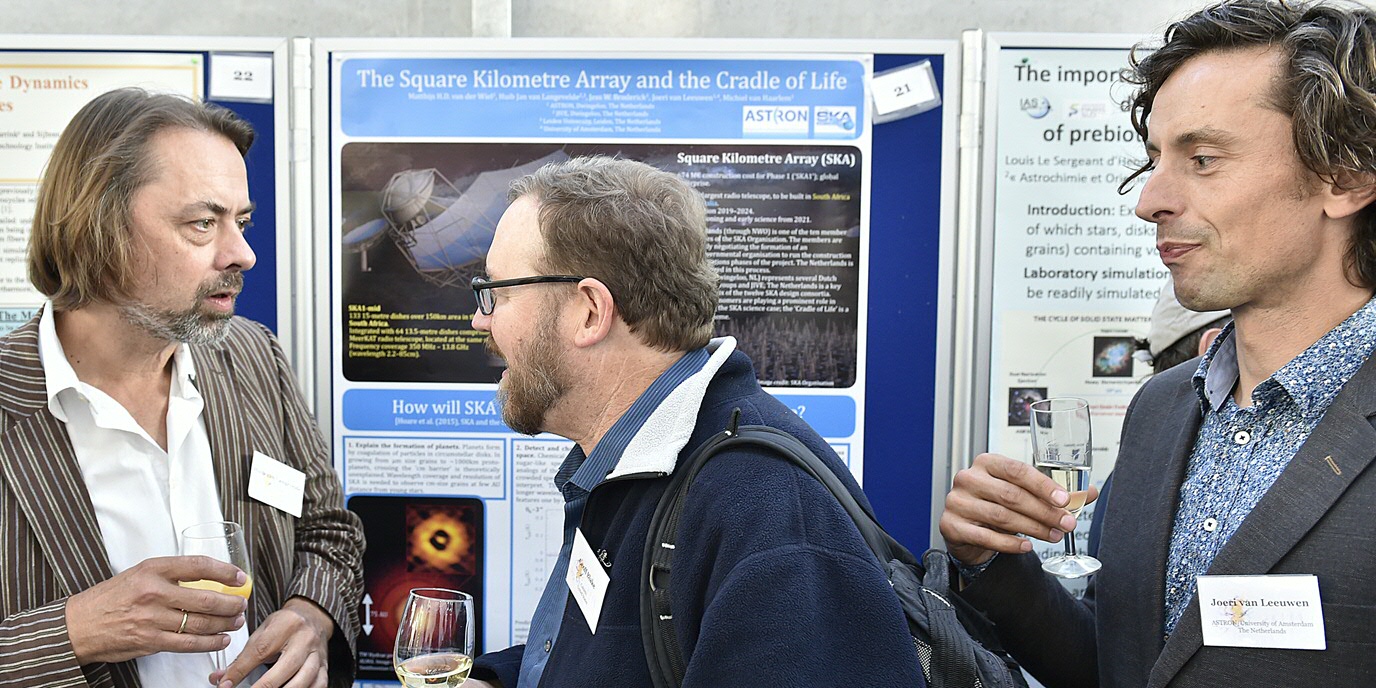Origins Center to open at Fundamentals of Life in the Universe symposium

On 31 August, Louise Vet (director of the Netherlands Institute for Ecology, NIOO-KNAW), Ben Feringa (University of Groningen, Nobel Prize winner for Chemistry 2016) and Rens Waters (general and scientific director of the Netherlands Space Research Institute SRON) opened the Origins Center, in front of an audience of over 200 delegates at the Fundamentals of Life in the Universe symposium.
The Fundamentals of Life symposium was held on the Zernike Campus of the UG. Nineteen speakers from the Netherlands and abroad discussed the various aspects and challenges in the search for the origins of life. In conclusion, Stan Gielen, chair of the Netherlands Organisation for Scientific Research (NWO), spoke about the future of the Dutch National Research Agenda.
Origins Center
The Origins Center is a virtual pooling of resources, bringing together leading Dutch researchers from the fields of astronomy, biophysics, ecology, molecular and evolutionary biology, planet and earth sciences, chemistry, mathematics, informatics and computational science, all focusing on the origins of life in the broadest sense of the term. In July, NWO awarded the Origins Center a grant of € 2.5 million for a three-year programme involving a number of preliminary research projects. The programme includes developing a virtual centre designed to support collaboration between these researchers and similar centres elsewhere in the world. The Origins Center will also initiate projects relating to science communication.
The Center’s programme entails five three-year projects, focusing on the origins of life-bearing planets and life on planet Earth, the predictability of evolution, the malleability and controllability of life, modelling planet Earth as an exoplanet and the mathematical understanding of the effect of emerging phenomena on underlying organization levels in natural systems. The projects will serve as a joint basis for a larger, longer-lasting scientific programme designed to provide pioneering insight into the phenomenon ‘life’ on astrophysical, planetary and molecular scales.
More information




| Last modified: | 23 February 2021 08.46 a.m. |
More news
-
10 June 2024
Swarming around a skyscraper
Every two weeks, UG Makers puts the spotlight on a researcher who has created something tangible, ranging from homemade measuring equipment for academic research to small or larger products that can change our daily lives. That is how UG...
-
21 May 2024
Results of 2024 University elections
The votes have been counted and the results of the University elections are in!
